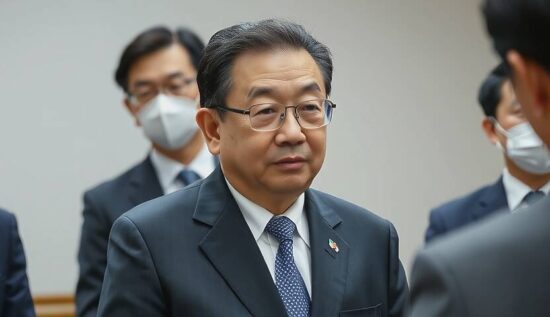South Korean Court Issues Arrest Warrant for Former President Yoon Suk-yeol
A Seoul court has granted a request from the prosecution to detain former President Yoon Suk-yeol, marking the first time in the country’s history that an arrest warrant has been issued against a sitting head of state.
Yoon is accused of being the mastermind behind the declaration of martial law on December 3, inciting an uprising, and abusing his power. The Corruption Investigation Office for High-Ranking Public Officials (CIO) filed the arrest warrant after Yoon ignored three summons for questioning in connection with the short-lived martial law.
The court’s decision gives the CIO 48 hours to take Yoon into custody for further questioning, but the final execution of the arrest warrant remains unclear. The president’s security team had previously denied investigators access to the presidential office and Yoon’s official residence due to alleged security concerns.
Although the suspended president still enjoys immunity from prosecution, this privilege does not extend to charges of insurrection or high treason. Yoon’s lawyers argue that the CIO is not authorized to investigate insurrection, which is typically the police’s responsibility. The CIO chief, Oh Dong-woon, however, claims that a court-issued arrest or detention order cannot be legally obstructed, not even by the president.
The brief declaration of martial law on December 3 shocked the nation and triggered an international alarm, particularly among allies like the US. Masked troops, equipped with guns, body armor, and night vision goggles, stormed the parliament and targeted employees who stood in their way with fire extinguishers.
The declared martial law lasted only six hours before it was revoked by a parliamentary vote. Yoon was subsequently suspended from office after the National Assembly approved an impeachment procedure against him on December 14.
The Constitutional Court then initiated a procedure to decide whether Yoon should be removed from or reinstated in office, and has 180 days from the date of suspension to make a decision.
Han Deok-su, who became the interim president after Yoon’s suspension, was also charged for refusing to appoint judges for the Constitutional Court, a step necessary to conclude the impeachment procedure against Yoon. Han argued that he could not appoint the judges immediately because of a lack of consensus between the government and opposition parties. The opposition Democratic Party then accused him of being unqualified and unwilling to protect the constitution.
On Friday, the Finance Minister, Choi Sang-mok, was appointed as the second acting president of South Korea in two weeks.





